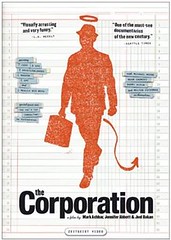This story is posted online for free as part of Crossed Genres’ Post a Story for Haiti. If you enjoy this story, please consider donating to one of the organizations working in the Haiti relief effort and long-term rebuilding. I recommend:
This story is part of the novel-in-progress Cold, and takes place not long after the events recounted in the story “Cold” published in Crossed Genres Issue #12 (November 2009). You might want to read that story, too. Like “Cold”, “Shark” was originally written as part of NaNoWriMo 2007 (on November 5, 2007, to be exact), though it’s been heavily revised since.
Shark
by Melissa S. Green
“So what are you doing, Bai?” Lys Dabrukas gazed steadily across the table at her, looking, for the life of her, concerned.
Sweat was drying tight and prickly on Bai’s forehead. She rubbed at it with the back of her hand. “What do you mean, what am I doing?” She was dirty and sweaty from the afternoon they’d just spent in the Turnbull soil manufactory, doing their part to help turn Oikos regolith into soil for the habitat’s expanding greenhouses and farms. As they’d left the manufactory, Lys had prevailed upon her for a brief private conversation, so reluctantly she’d stopped by a breakroom with her while Boleyn and the others went ahead to the showers. That’s what Bai would’ve liked a whole lot better than talking with Lys — a shower, a pair of clean cuvs, a meal with Boleyn and her little brother Chander, and then their plan for the evening: heading over to Blue Commons for the hospitality dance Blue was hosting for their own commons. The Blue dance and gift exchange had been the talk of Green Commons all day — Turnbull Blue Commons was famous even in the UpAbove for its talented musicians. Besides, Bai hadn’t seen her Guerrier cousins since Boleyn’s return, and she was eager to reintroduce them to each other.
From Lys: a frown of worry, a patient second attempt. “You’re really wrecking your chances at Examination, you know.”
Boleyn dropped her hand. “What?” she asked. “How?”
Lys sighed. “Your association with Boleyn Maheshwari, of course.” First and last name, as if Boleyn was some stranger. Lys tossed her head to get her hair out of her eyes. She was grungy from the work, too, her face dirt-smudged and sweat-streaked except for the pale clean area around mouth and nose that her mask had protected. “Don’t you see how that’s going to affect Examination? I heard you were going up for it soon.”
Fishing for confirmation of the rumor? Or fishing for something else, too? It was a little surreal, really. But then, this was Lys. “Is this why you wanted to talk with me?” Bai asked tightly. “To tell me this?”
“No, you’ve got to hear me out,” Lys said.
“I don’t know why.” Over the past few days, it had become increasingly apparent how limited Lys’ power among the Green Commons youngers really was. Just an illusion, really, a balloon that Boleyn’s return had burst. It wasn’t Boleyn’s return alone that factored in, of course. There was also the growing preoccupation among their age-mates with the looming initiation into adulthood represented by Examination — a preoccupation only heightened after the rumor that Boleyn and Bai intended to Examine early began to circulate. Examination would mean their formal acceptance into adult Consensus, and upon it depended the initial course of their lives as adults: what work they’d do and where they’d do it, the likely direction of their further education and life work, and along what timeline.
Lys was unprepared for Examination herself, Bai was sure of it. And if Bai and Boleyn succeeded in gaining adult Consensus a full year ahead of most of their age-mates — they’d be just that much further along than Lys. Faced with this, Lys must finally be catching on to the fact that she wasn’t so powerful after all. She’d no doubt thought to have another year to consolidate her influence over her peers, but her influence with Examination was no more nor any less than what any of them had: simply to contribute her own comments and observations about their strengths and weaknesses and what it was like to work, study, and live around them. Examination was not guided by teenage concepts of popularity: what counted there was merit, maturity, motivation, and a record of responsibility and care toward Consensus, community, and — of course — to the terraforming project upon which the future of all humanity in this solar system depended.
“You used to like Boleyn okay back before they were exiled,” Bai said. “What’s your problem with her now? Why should you try to make it mine? Are you planning to run us down at our Examinations?”
“No, of course not!” Lys denied, so wide-eyed that Bai was certain she’d hit a mark.
“Just tell the truth, Lys,” Bai said. “Integrity, like Meikäläinen taught. It’s the Consensus way.” Strange, how the tired old saying she’d heard since childhood sounded actually true and meaningful in this instance. She hadn’t even said it ironically.
“Of course we will,” Lys said, her eyes still wide.
We, Bai noted. She could guess: Lys, Walker, Gavril… maybe Ana. She didn’t think Masozi would go along with anything like that. She must ask him what he’d heard.
Lys was flushing, as if she’d realized her little slip. “It’s not… not as if I could comment much in Boleyn’s Examination anyway, it’s been five years….”
“Then why are you warning me about my ‘association’ with her?” Bai demanded.
Lys had never seen her angry before, Bai realized. She was really rattled. That must account for her backpedaling reaction and how florid she’d become under the sweat-tracked grime on her face. She looked confused and defensive, as if she had the lower hand, not the upper. Bai had the upper hand, it came to her. Now that was an interesting thought.
Lys rallied. “It’s their Exile, the Maheshwaris’ Exile. You’re…” — Lys hesitated, searching out a word — “tainting yourself with it.” And mightily pleased she was with the word she’d found, too. The flush in her face receded.
“Their Exile is over,” Bai said flatly.
To her surprise, Lys laughed. “Oh please. Don’t be naive, Bai.” She looked at Bai’s face, laughed again. “Surely you don’t believe that it was only about the stupid yaks.”
Bai kept her expression unchanged, not to give anything away. If there was anything to tell her the difference between Lys and herself, it was that. Until the Maheshwaris brought them forth from the Ark, yaks hadn’t been seen by anyone of the Project in three centuries and more. Five generations, six generations, since Project ships left Sol System — but those yaks born out of the Ark-frozen ova and sperm of their dams and sires were only one generation from Earth. Their parents had lived on Earth. Those yaks were not stupid. They were miracles. Miracles, what’s more, which could produce meat, cheese, wool that could be woven into clothing — animals who could even live wild off the land, adapted as they were through uncounted generations in the high mountain altitudes of Earth to the low atmospheric pressures that prevailed even at Metsi. From Metsi, as Oikos’ atmosphere thickened, they could spread to higher elevations — to Turnbull, maybe even as high up as Gusev. All right, so the Maheshwaris had jumped the gun by fertilizing yak eggs before it was fully consensed — but the yaks were still miracles that would help them to live on this world under open skies, just as Esti Gusev and Jyoti Sindhu had dreamed so long ago.
As to issues beyond yaks and meat and wool and open skies — well, she hadn’t thought much lately about what else had played into the Maheshwaris’ Exile. She’d developed only an infirm grasp of other causes when she’d read through the record a year ago. Ma had helped her understand some of the issues then — a little — and two or three of Boleyn’s remarks since she’d come back had give her pause for thought. Clearly she needed to understand more. She resolved then and there to read through the record all over again, and to insist Boleyn do so as well, and then to talk it over with her and with ma and the rest of the family. Both families. Ma had told her what they must do to prepare for entering into the responsibilities of adult Consensus. Politics was a big part of it.
Lys might be a manipulator whose clumsy bullying now was obvious to someone like Bai who’d known her from diapers, but that was just the hamhandedness of a younger. Michael Dabrukas, she suddenly remembered — Lys’ father — had been a key player in the arguments that pushed the Maheshwaris’ case to Court after an initial agreement involving a milder sanction had already come about. Lys had probably learned a thing or two from her father. If she couldn’t become World Emperor, or even king or queen or president, still, ma had said it: Lys was of that kind that idealists claimed Consensus government had put an end to: a politician. “Michael Dabrukas himself says Consensus wiped out politicians,” Mei Wang had said a year ago, “because he’s an idealist. But he’s fooling himself — what’s he, if not a politician? So long as humans draw breath there will never be an end to politicians. Desire for power is as inherent in our biology as sexual desire.”
Being now particularly afflicted with the latter of these, Bai was newly attuned to the lesson. She wouldn’t put it past ma to have reckoned a year ago what would come to pass between her and Boleyn when they met again, and set up the lesson that way just so she’d remember. Now she did remember, all of it.
There they’d been, ma and her on the couch in their quarters, ma sitting sidewise to face her, holding Bai’s hands in her own. It had been three or four days after Bai finished reading the Library records on the Maheshwari case, a reading which had refreshed her bitterness and grief at what still, a year ago, had felt like a permanent loss of her friend. Her love, yeah… ma surely had known that Boleyn and her went that deep with each other, even before Bai did herself. Clever ma.
Bai had known the Exile was about more than the “stupid yaks,” but she’d never fully understood why. She hadn’t gotten why Lys’ father and the others in his camp had pushed the case up the line to Court to make the sanction harder, or why Boleyn’s parents — hell, why Boleyn herself, and Chander and Ajit — had accepted it. She’d known that what she didn’t understand was important, so she’d brought her question to ma along with her tears. For her tears, ma had held her hands. For her question, ma had given her pragmatic explanation. Desire for power, as inherent as sexual desire.
“Because of that,” ma had said, “we can’t afford to be idealistic about it. Politics in itself isn’t evil — get used to that. Consensus is just as political as any other system of government. It’s different only in that it levels the playing field so that we all have a say, a real say, limited only by others’ perceptions of how reliable we are. You’ve read history —.” Indeed Bai had, far beyond what Ser Carey had required. She’d read back all the way to the chaos of Earth, because ma had said she should. “Some governments,” ma said, “were based on a concentration of military power, or terror, or economic power. Even many of those that claimed they were democracies were really based more on money: who had it and who didn’t, who could afford to buy votes or political advertising, or who controlled powerful business corporations like the ones our ancestors in the Main Belt and Outer System threw off. Our system is based on what you might call a concentration of the persuadable. What gets influence isn’t money, but argument — persuasive argument, backed by the integrity and merit, so we hope, of those making the arguments. What happened to Akash and Elizabeth, and to Boleyn and her brothers, was in part the result of arguments that convinced a supermajority, first of Consensus, and then of Court. It doesn’t, however, mean that the arguments which prevailed were correct arguments.”
“Then they shouldn’t have had to go!” Bai had protested.
“I didn’t say they were incorrect arguments, either,” her mother had said. Before Bai could protest at that, she said, “I believe they were incorrect. But Akash and Elizabeth admitted they did wrong, and in some eyes that left them with little moral ground to stand on. Besides, they themselves were influenced by certain private argu—”
“Why not?” Bai interrupted. “You’ve taught me one should admit one’s wrongs, and that honest and sincere confession always leads to mercy.”
“No, not always. I’ve never said always. Sometimes a shedding of blood brings mercy. Sometimes it brings sharks.”
Then she’d had to explain that metaphor. Bai, being her mother’s daughter, had looked sharks up in Library next chance she got. Ugly, she thought them. Ugly and fierce. Maybe one day they’d come out of the Ark and she’s learn what they really were.
Lys wasn’t ugly, not physically in any case. Fierce?… perhaps. There’d been a time, before she’d turned into so much the bully and manipulator, that she’d been something of a friend. In the first months after the Maheshwaris’ departure, she’d been one of the few of Bai’s own age to whom Bai had exposed her grief. Lys had been kind, then. Blood, and mercy. But if she were to expose herself now, Bai thought, Lys would be a shark.
Just the same, back then she’d been kind. Bai had to remember that. She wasn’t herself a shark. Integrity, like Meikäläinen taught. Like Esti Gusev taught. Like ma taught. And so she couldn’t say anything other than what she said next.
“What any of the adults might think of me or Boleyn when our Examinations come,” she said, “that’s up to them. But you know me, Lys. Be fair. Be fair to me, and be fair to Boleyn. Your Examination will come up too. I promise we’ll be fair to you. We’ll always be fair to you.”
She could see from Lys’ face that, again, she’d hit the mark.
She got up and went for her shower.
Now it’s your turn.
Please donate to Haiti earthquake relief. Here are the links again:
See also other Post a Story for Haiti stories. Post your own, if you have one.








